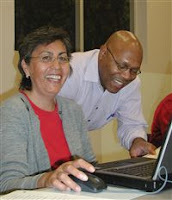
In her article, “Why Twin Cities residents volunteer more,” the Minnesota Post’s Cynthia Boyd found that volunteers save America billions, with last year’s efforts being valued at $2.2 billion for the Twin Cities alone, this according to officials from both the CNCS and the Minnesota Association for Volunteer Administration. With the world’s economy on its heels and America reeling from nearly four years of recession, help is needed now more than ever. Minnesotans understand that no contribution is too small. Last year, some of us volunteered a handful of hours, others put in ten or twelve per week, some committed full-time to their respective causes, but together, we lifted our community to the no.1 slot.
Mary Lynn Smith from the Star Tribune takes a good stab at the “why” in her article Twin Cities helping hands lead nation. In it, she quotes Community Service corporation’s CEO, Robert Velasco, II, as well as the head of Lutheran Social Service, Mark Peterson, who attribute the results to both individual and institutional compassion. We have high rates of education and home ownership, short commutes, a generous, civic-minded corporate environment, and a generally warm-hearted population that doesn’t mind baking the occasional pan of lasagna for a hungry family, or driving it over to them.

Volunteers, volunteer organizations, corporate sponsors, faith-based groups, and a wide, effective range of public programing and funding are what keep Minnesota’s legacy of fellowship and goodwill alive and active throughout our great state. The Minnesota Literacy Council knows that adult basic education is vital to our continued success. Adult basic education programs enrich the lives of Minnesotans and ratchet up the potential for economic growth.
If you can read this post, and know what a couple of billion means in relation to the state or national debt, and if you can get here (as you must have) via web, read and contextualize the data, assess the claims, follow the links and reach a conclusion, odds are you have a better chance of finding a job and supporting a family than someone who cannot read, or do basic math, or surf the web. Speaking, reading and comprehending English; learning to use math and quantitative reasoning, computers and web-tools; preparing for a GED test; these are some of the things people can accomplish when they meet with a volunteer in community literacy.
I’m glad to have a role in MLC’s mission, and proud to live in a community where 37.1% of the people strive to connect with and strengthen other members. Congratulations to all volunteers. You address your convictions by taking action, and you deserve your community’s deepest thanks.
Joe Conry
Volunteer Outreach Intern
No comments:
Post a Comment